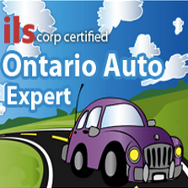
Sep 6, 2013 | News
A recent poll from TD Insurance reveals that although 89% of Canadians feel they are ‘somewhat’ or ‘extremely’ likely to know what to do following an auto accident, only 31% know the exact steps to take. In a real-life situation, how prepared would you be to deal with an accident safely and efficiently?
“Fender benders resulting from drivers making sudden stops in intersections, or pulling out of a parking spot without checking first happen every day, so it’s important to be prepared and know what steps to take afterwards,” says Dave Minor, a vice president at TD Insurance. “The actions you take after a minor accident can affect your insurance coverage, so be sure to review the steps with your insurance provider when you renew your policy each year.”
Minor offers the following tips to drivers:
- Keep calm – Being in an accident is stressful, but try not to panic or make rash decisions. Don’t accept money or admit fault for the collision, and don’t agree to just forget about it. Most drivers (87%) say they know not to accept money or accept fault, as this can affect the coverage their insurance company will provide for the incident.
- Safety first – Check to make sure everyone involved is safe. If anyone is injured, do not move them, doing so could worsen their injuries. If you’re able to safely move your vehicle out of the flow of traffic, and protect it from further damage, do so. “Your number one priority after getting into an accident is making sure everyone in the vehicle is safe. Once you’ve established the safety of the passengers, take steps to protect everyone from any additional damage by moving your vehicle out of traffic.”
- Call the police – Call 911 to report the accident if anyone is injured, if you believe that there is major damage to your vehicle, or if you think a criminal act may have been committed.
- Take notes – Include details of the accident and identification of the vehicles and people involved, including emergency personnel or witnesses on scene. If possible, take pictures or video, and/or draw a diagram of the accident scene to assist with documentation of a claim. Keep a notepad, pencil, and a checklist of things to do after a collision in your glove compartment, just in case.
- Call your insurer – Most insurance policies require you to report any accident involving loss or damage to people or property. If you don’t report an accident, it may affect your coverage down the road. If another driver involved reports the accident, their insurance company may contact your insurance provider, which could lead to cancellation or non-renewal of your policy if you have not reported the accident yourself. “Contact your insurance provider as soon as possible to inform them of the accident, not only to cover yourself and your car, but for help with how to handle the situation,” says Minor. “Your insurance provider can confirm all of the information you should be collecting from the other party. They can also offer a list of recommended repair shops in your area that can help with getting your vehicle back in shape even faster. Review your policy before repairs are made to make sure you understand the limitations of your coverage.”
TD Insurance commissioned Environics Research Group to conduct an online custom survey of 2,466 Canadians aged 18 and older, who have driven in the past 12 months. Responses were collected from February 7-18, 2013.
Do you provide your clients with information on what to do and who to contact in case of an accident. Are you familiar with how accidents can affect their auto insurance rates?
ILScorp, Canada’s leader in online insurance training has two new continuing education courses for BC Autoplan agents, as well at the Ontario Auto Expert course, to help you understand the auto insurance options available and better serve your clients.

Sep 4, 2013 | News
Are you looking to complete the Life Licensing Qualification Program (LLQP) for life insurance agents in Canada? Now you can prepare to write the exam with ILScorp’s first fully online Life Licensing Qualification Program in Canada. The online LLQP is a one-step licensing program designed to help you prepare to work in the life insurance industry.
The ILS LLQP insurance training program is a comprehensive streaming-video course, designed to give students the knowledge and skills to successfully challenge their provincial LLQP examination. The online training program provides six months of access to the LLQP Life Insurance Course in video format, a series of exam-type case studies, an online mock exam and your certification exam.
Typically students will spend between 80 and 120 hours preparing for the provincial LLQP exam, and with the ILScorp LLQP you can review any subject before moving on in the course. The ILScorp LLQP negates the need for a textbook, as all of the information to successfully challenge the LLQP provincial exam is included in the online course. Case studies, sample exam questions and scenarios are all part of the online curriculum.
Access the course whenever it suits your schedule, and from anywhere you have an internet connection. Work at your own pace and when it’s convenient for you.
The ILScorp LLQP online course is facilitated by Bob Ransom, CLU, CHFC and CFP. Mr. Ransom has been an active member of the Canadian insurance and financial services industry for more than 30 years. He has spent many of those years in the development and delivery of Accident and Sickness and Life Insurance Certification courses and related workshops. View a demo of the LLQP course here.
The ILScorp LLQP course is available for $299.95. For more information about this and other online insurance courses, visit ilscorp.com or call 1-800-404-2211.

Sep 3, 2013 | News
Satisfaction among small business insurance policyholders is significantly higher when insurance brokers and agents provide their clients with more guidance, according to the latest survey from J.D. Power in the United States.
Small business insurance customers are more likely to be satisfied with insurance agents or brokers who understand their customers’ needs, and meet with them in person to discuss their insurance.
Overall customer satisfaction among small business insurance customers was 777 points on a 1,000-point scale, according to the survey, based on 3,742 responses from insurance decision-makers in businesses with 50 or fewer employees that purchase general liability and/or property insurance.
When agents or brokers understand their customers’ business and provide guidance on risk, the satisfaction score was much higher, at 835 points. If neither of those expectations are met, satisfaction is around 645 points, according to the J.D. Power survey.
Policy offerings, rather than price, were the primary reason for selecting an insurer, the survey results suggest. The level of service provided is the primary reason customers said they stay with their insurer for more than two years.
“Small business customers who are highly satisfied with their insurer are more likely to work with just one insurance provider for all their insurance needs, as well as purchase more products, on average, from their carrier.”
Overall satisfaction was comprised of five factors (in order of importance): interaction; policy offerings; price; billing and payment; and claims.
Customer satisfaction was highest among businesses with 11 to 50 employees (at 790 points), compared with businesses of four or fewer (769 points). J.D. Power attributes this to brokers and agents interacting more with larger customers. Three times as many deal are made outside of the broker’s office with these larger businesses.
“Providing face-to-face consultation, from policy review to helping customers understand price adjustments initiated by the insurer, is crucial for customer retention and satisfaction,” said Jeremy Bowler, senior director of the insurance practice at J.D. Power.
“Those small business customers who have regular face-to-face contact with their insurance agents are more likely to understand their coverage, its value and the reason for a price adjustment should one occur. These customers are more likely to be satisfied and loyal to the insurance brand than those who don’t have regular in-person interactions.”
Bowler also noted that satisfaction is higher when insurers inform small business customers about price changes in person (823 points) than when they inform customers by phone (805) or email (783).
Tell us: How do you interact with your business clients? Are you seeing more success selling face-to-face with business decision makers?
ILScorp offers a variety of commercial insurance training courses. Visit www.ILScorp.com for more details

Sep 3, 2013 | News
CE with ILS – fast, easy, done!
Ontario insurance agents – your Continuing Education deadline is now only a few weeks away, and ILScorp is ready to help you complete your CE courses quickly and easily. With more than 50 newly updated, accredited Continuing Education courses now part of the ILScorp suite of CE classes, Ontario insurance agents can earn their CE credits online in time for the Sept. 30th deadline.
In Ontario, Principal brokers and deputy principal brokers are required to complete 10 credits per year, with 5 in the management category, and all other licensed individuals require 8 CE credits. The year runs from Oct. 1- Sept 30.
ILScorp offers more than 160 online General Insurance training courses designed to help insurance professionals meet their mandatory licensing requirements and receive the most relevant and up-to-date information in the industry.
All ILScorp courses are accredited and are written by insurance training experts. These text and video courses engage the user, so the learning experience is both interesting and entertaining. The online format allows you to access your courses anytime, anywhere, and at your convenience. A 6-month subscription to our General Insurance continuing education courses is only $175, which allows you to choose from more than 160 accredited online CE courses. Or, purchase courses on an individual basis.
The ILS General Insurance Training Course Catalogue includes the following course categories: Personal Lines; Commercial Lines; Automobile; Farm; and Professional Management and Personal Skill.
With more than 23,000 annual subscribers to our online training programs, ILS has been Canada’s leader in online insurance training and career development since 2001. ILScorp offers your best option for insurance industry continuing education credits.
Call 1-800-404-2211 or go to www.ILScorp.com and get started today.

Aug 29, 2013 | News
How can an intangible service as mundane as selling insurance benefit from the value of social media? The marketing and selling of auto insurance for example, is really no different than the marketing and selling of any other intangible product such as hotel rooms, and there is plenty of opportunity to use social media to engage and inform potential customers.
The most successful on-line campaigns come from those who know their markets and are focused on their customers’ wants and needs.
“The big pitfall is in not knowing your market,” explains Laird Rixford, vice president of Products and Marketing at Insurance Technologies Corporation. “If you’re sitting there trying to sell commercial policies on Facebook, it’s just a waste of time.”
Facebook and Twitter offer the ability to showcase the personality of an insurance agency while assuring customers that they matter.
And insurance companies like Progressive and Geico were two of the first to realize in creating to memorable mascots to sing their praises, they could use social media to tell their stories. Think of the recognizable spokespersons of Flo, the Progressive Girl and the Gecko from the Geico ads as examples of how auto insurance companies have put ‘personality’ into their offerings.
In 2012, Geico launched its “Gecko’s Journey Across America,” and while TV commercials whet the consumers’ appetite, the Gecko’s tour of the country was far more comprehensive and interactive online, thanks to social media.
Using Facebook, Twitter, YouTube, and other social media portals, the Gecko posted commentary from the road, including photos and videos. With tweets and status updates, the Gecko delivered his perspective in the fun-loving way we as consumers have come to expect. What does a Geico office look like to a gecko? Where would a gecko go in New York? Know a great place to eat in Dallas? Let the Gecko know and he just might end up there.
The campaign’s social media staple of being “user-generated,” resulted in a lot social media engagement for Geico.
According to Jeff Charney, chief marketing officer of Progressive, Flo’s success is due to the fact that people are able to connect with her through her Facebook fan page – where she has more than 5.2 million fans. She also has her own Twitter profile. And her fans find it easy to connect and relate to her because she comes across as real and honest.
What Flo doesn’t do is tackle customer inquiries and problems directly — @Progressive handles the customer complaints. Separating the customer service issues from the brand persona allows Flo to remain a brand-focused asset for her Progressive presence on Twitter.
Characters like Flo and the Gecko offer a softer sell which is a perfect fit for marketing via social media channels.
On Facebook, “one out of every seven posts should be self-promotional,” Rixford said. “The other six should be just fun things that you are doing for charity, your community, what’s going on in your community. Just being out there is what people like to see.”
You don’t need a fancy mascot or dedicated character, but sharing information, insight, and putting a real voice to your business via social media, can keep clients coming back to you for their insurance needs.
Connect with ILScorp on facebook and on Twitter at @ILSCorp.
Excerpted from inventorspot.com

Aug 28, 2013 | News
ILScorp offers insurance training and exam prep courses for CAIB 1, 2, 3, & 4, via online video training, virtual classrooms and live immersion classes.
If you are just starting your insurance career, then the Canadian Accredited Insurance Broker Level 1 Exam prep course is for you. Learn the fundamentals of working in the insurance industry, and prepare to write your CAIB 1 licensing exam.
Looking to earn your CAIB 2, 3, or 4 designation? ILS can help there too!
Our interactive, online CAIB Exam Preparation video courses combine the dynamic instruction of Todd Hochban with the ease and convenience of online learning. Each CAIB insurance training course contains streaming video, and is divided into easy-to-manage chapters. Each chapter includes 10-20 video clips, along with easy to read text. Numerous exercises and mock exams help to reinforce knowledge retention. Study online with 24/7 access to the program, allowing you to work on your own schedule.
Or if you want more guidance, start the ILS CAIB Virtual Classroom program on Nov. 4 and receive a study schedule, daily emails and quizzes and more. You’ll be ready to write any level of CAIB exam in just four short weeks.
Online self-study is a proven way to successfully prepare for insurance licensing examinations. Study at your own pace – stop the program at any time and return when you want. Go back over difficult-to-grasp points as often as you wish. More than 80% of students who prepare to write their CAIB exams with the ILScorp CAIB tutorial courses are successful.
Through ILS’s online courses, you’ll receive the same dynamic instruction as students who attend classroom sessions. Long-time insurance educator Todd Hochban brings his successful “need-to-know” approach to this video production. Preparing to write the CAIB 1, CAIB 2, CAIB 3, and CAIB 4 examinations has never been easier!
Once you’re ready to write the exam, contact your local insurance council to arrange your exam.
Instructor Todd Hochban highly recommends using the CAIB textbook in conjunction with the ILScorp CAIB Programs to thoroughly learn the material. CAIB textbooks can be purchased through your provincial brokers association. Contact the association directly for more information.
And remember when it comes to CAIB, ILS wrote the book! Our founder and past president Steve Hawrishok developed and wrote the CAIB course.
Call 1-800-404-2211 or visit ilscorp.com today for more information.









